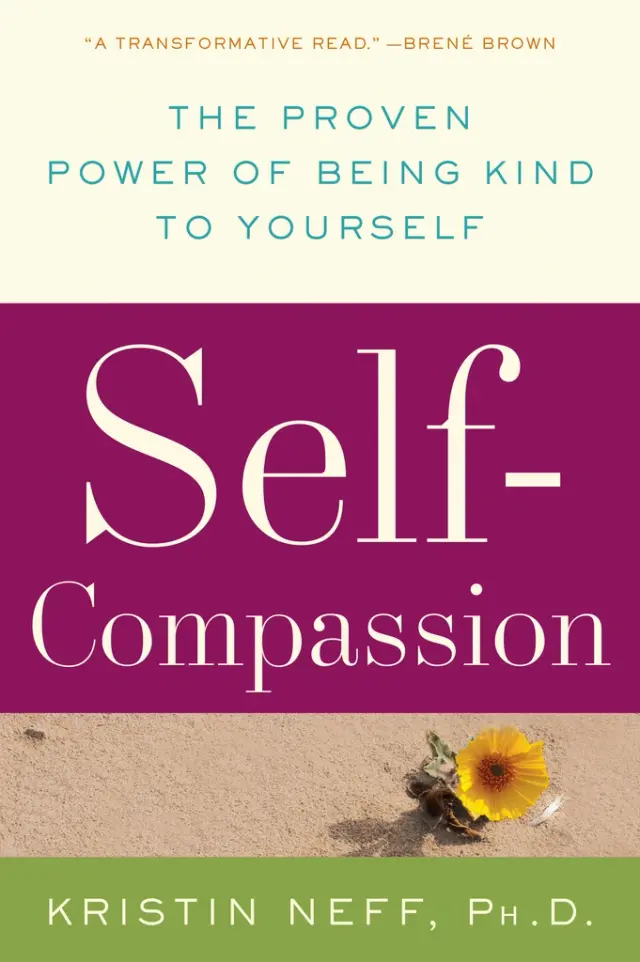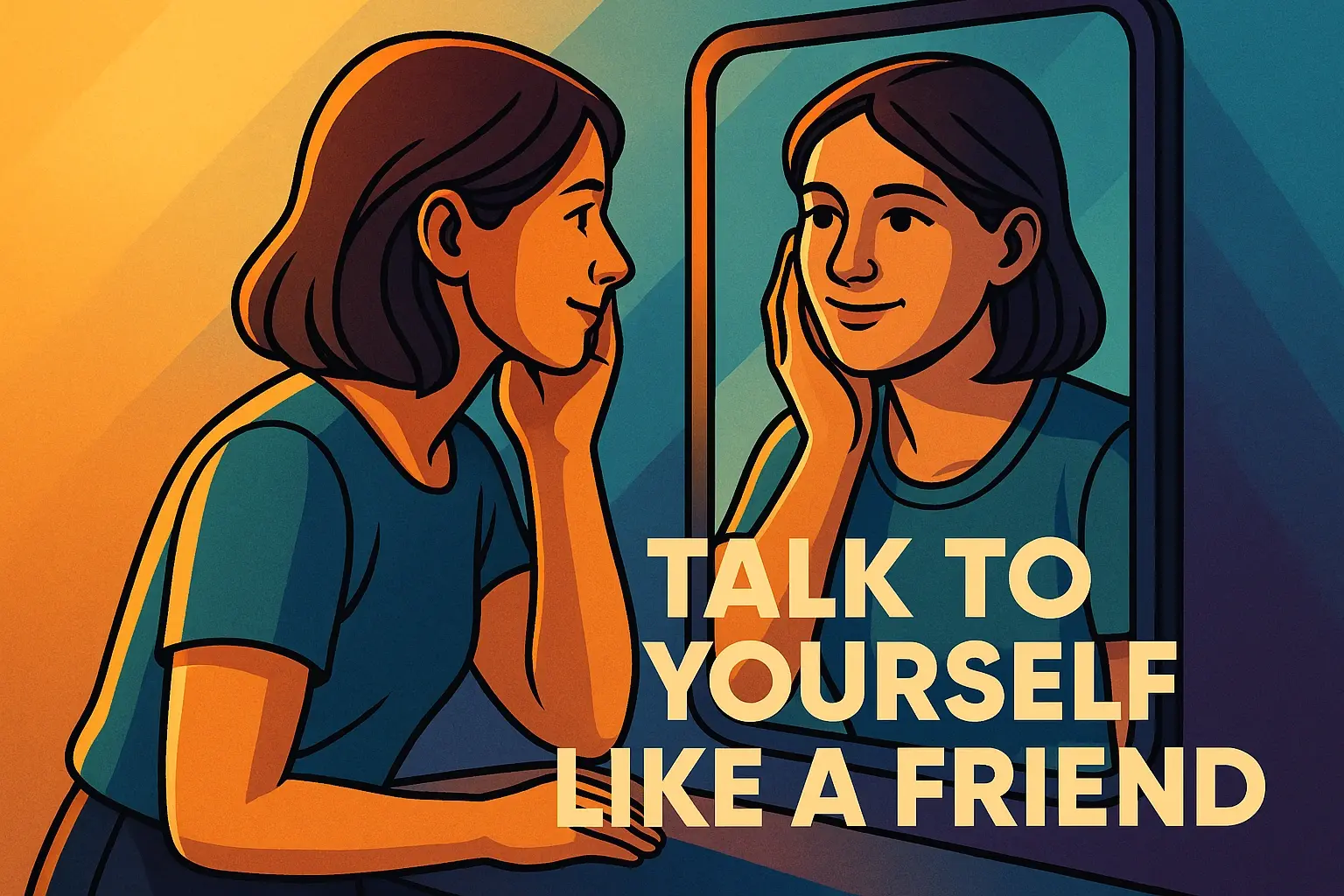
Self-Compassion: The Proven Power of Being Kind to Yourself
By Kristin Neff
Published October 12, 2025
Kristin Neff reframes self-compassion as a practical, evidence-backed alternative to self-criticism. Instead of beating ourselves into change, we can treat ourselves like we would a good friend: acknowledge pain without exaggeration, remember we’re not alone, and choose kind actions that move us forward. The result is greater resilience, motivation, and mental health. This summary explains the core components, debunks myths, and shows how to practice—in real moments of struggle.
Key Lesson
Talk to yourself like you would to a good friend—accurate, kind, and oriented to the next helpful action.
Talk to Yourself Like a Friend
Book Snapshot
ISBN
9780061733512
ASIN
0061733512
Topics & Search Phrases

Full Summary
Self-Compassion begins with a simple reversal: what if the way you talk to yourself in hard moments determined your capacity to grow? Kristin Neff, one of the leading researchers on self-compassion, argues that harsh self-criticism is an unreliable strategy for excellence. It often produces shame and avoidance, trapping us in the very patterns we want to change. Self-compassion is not self-pity or an excuse. It is a disciplined practice that short-circuits shame and restores agency.
Neff’s framework has three parts. First is mindfulness: noticing what’s happening now without over-identifying with the storm of thoughts and feelings. Mindfulness names reality: “This is painful,” “I’m disappointed,” “I feel anxious.” It neither dramatizes nor suppresses. Second is common humanity: remembering that struggle is a shared human experience. Instead of “Why me?”, self-compassion answers “Why not me?” Others miss deadlines, say the wrong thing, lose momentum, and feel lost. This shift punctures the isolation that makes pain cut twice. Third is self-kindness: choosing words and actions that soothe and support rather than attack and escalate. It’s the difference between “You’re hopeless” and “This was hard; what’s a small, helpful next step?”
A myth Neff dispels quickly: self-compassion will make you soft or lazy. The research points the other way. People who practice self-compassion take more responsibility and persist longer because they’re not busy hiding from shame. When failure is survivable, learning becomes possible. Athletes who reframe with kind accuracy bounce back faster. Students who talk to themselves like a coach rather than a bully study more consistently. Employees with self-compassion are less likely to burn out because their inner dialogue includes rest, boundaries, and realistic standards.
The book is rich with practices. One is the self-compassion break: pause, place a hand on your chest or forearm (somatic cue of safety), and say three things: “This hurts,” “I’m not alone,” and “May I be kind to myself right now.” Then choose one small act of kindness aligned with your values—drink water, apologize, take a walk, ask for help, or write the next sentence. Another practice is writing a letter to yourself from the perspective of a compassionate friend. What would they emphasize? What would they forgive? What would they suggest?
Self-compassion is not the same as self-esteem. Esteem depends on comparison and success; it wobbles when life does. Self-compassion is unconditional: it’s a way of relating to yourself that you can choose regardless of performance. Nor is it permissiveness. Kindness can be firm: “This behavior hurts me; I will set a boundary.” Self-compassion can also be fierce—protecting your time, saying no to exploitation, and advocating for your needs.
Neff explores how culture complicates the practice. Many of us learned that toughness is virtue and softness is vice; we built identities around never needing help. Self-compassion can feel threatening to that identity. The practical on-ramp is experimentation: try the practices for a week and see what happens to your energy, relationships, and output. Most people discover that gentleness increases capacity. They argue less with themselves and act more.
In the end, Self-Compassion is a manual for sustainable courage. It equips you to meet difficulty with steadiness rather than scorn. You don’t lower your standard; you change your strategy. Instead of whipping yourself toward the finish line, you walk with yourself to it. That posture compounds across a lifetime: fewer shame spirals, more honest appraisals, better boundaries, and a calmer nervous system that can face what’s true.
See also: First, We Make the Beast Beautiful, The Road Back to You, The Art of Loving
Key Takeaways
- Self-compassion has three parts: mindfulness, common humanity, self-kindness.
- Kind accuracy beats harsh criticism for learning and resilience.
- Simple practices (self-compassion break, letters, soothing touch) change state quickly.
- Self-compassion is not permissiveness; it includes firm boundaries and advocacy.
- Treat yourself like a friend to reduce shame and sustain effort.